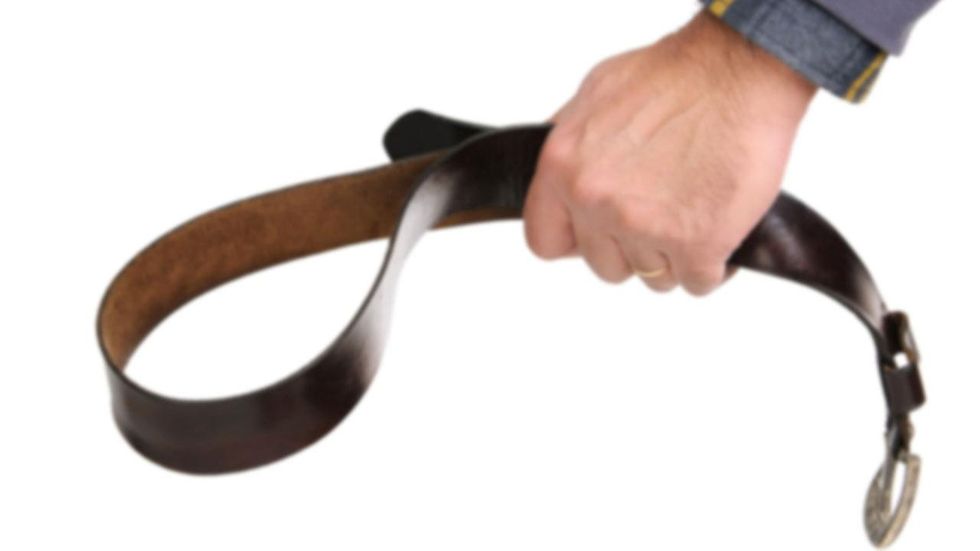This article is a response to the one entitled "Spank Your Dogs and Your Children If You Want To Raise Them Right."
PSA for content creator Dalle Rutledge of the University of Nebraska: don't reproduce or own pets.
When I first read this article, I was floored. I absolutely couldn't even fathom how a fellow content creator could publish an article supporting abuse towards animals and children, and exemplifying why they should be "spanked." Miss Rutledge believes that spanking animals and children will teach them respect and discipline, but that isn't the case. She first starts off to say that she is using "spank" as a metaphor, but at the end of her article she "has a moral code that was enforced by a belt to her bare ass a few times and a dog who listens." Excuse me, what? Who are you to tell others how to raise their children and dogs? And who are you to imply that the proper way to raise a child is by enforcing physical abuse, or the proper way to own a dog is to hit them?
Children and animals are defenseless. Sure, parents may "hit" their kids if they do something wrong- meaning a light tap on the wrist if they go to take something from a store. And maybe there are some parents, like the ones of Miss Rutledge, who physically harmed their child. Now i'm not going to be one to tell someone how to parent their child- but I sure as hell won't be using physical force on my pets or my children when I decide to have them.
Miss Rutledge says that "the world is full of entitled and ill minded pups, tots, teens, and mutts". Hold up there for a second. How is an animal entitled and ill minded? I have four cats and one dog. And guess what? I've never laid a hand on them to enforce discipline.I have enforced discipline on my animals numerous times by simply training them and saying "no" when they have done something wrong. I haven't hit them, punched them, kicked them, or whipped a belt across their ass when they have done something wrong. When my brother was a baby, I never once spanked him for doing something wrong, either. Or how about the kids I used to watch for eight hours a day at camp? Was I supposed to enforce discipline on them when they did something wrong by physically hitting them? No, I wasn't.
When "fido" (or my five animals) grew up from being kittens and puppies, they became well behaved. When I tell my animals no in a stern voice, they stop what they are doing. I don't sit there and scream at them or make a fuss because they did something wrong. If you teach your animals simple commands such as "sit" "stop" "no" "come" etc. they will learn what each of those commands mean when said in any given situation. When the girl in your scenario grows up to become sixteen and pregnant, is it really your business? "Mom and Dad" aren't to blame for their child's mistakes. You could be the best parent in the world and a child may still do something wrong. For example, what about if a person grows up to start doing drugs? What if that persons parents were doctors and lawyers who raised their kids right, or in your case, whipped and spanked them? Who does it fall on then, Miss Rutledge?
You are right about one thing- No should be in the vocabulary of any parent or pet owner. Parents should have no problem and every right to tell their child not to do something. But, explaining why a child has done something wrong goes much further than physically hurting them to get your point across because they did something wrong. Teaching children why their actions can be detrimental to themselves and others around them may make them understand as to why they are doing something wrong. Oh, and just a disclaimer: i'm a dog person. When a dog "jumps up on me and licks me in the face", I get super excited- I even encourage it. So maybe you don't like that, but don't shame others who do. Just because not every parent whips and spanks their child or dog every single time they do something wrong, does NOT make them a shitty parent. Just because you feel that abuse is okay to do to your own children and pets, does NOT mean that everyone else is wrong for not physically inflicting punishments on children and animals.



















